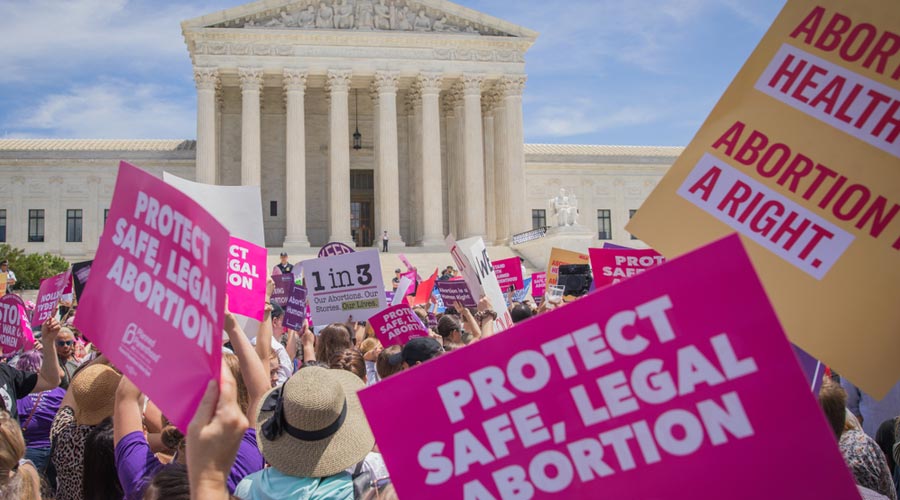It is a rare court ruling that can be called tragic. But the majority decision of the Supreme Court of the United States of America to overturn the 1973 judgment of Roe versus Wade that gave women the constitutional right to abortion is more than shocking. Its implications for thousands of women now and in the future are tragic and cruel. The judgment demonstrates how women’s bodies are subject to the dominant political powers; the American Constitution, the universal scheme of human rights or the struggles for equality are rendered irrelevant even in the highest court of justice. The conservative judges who overturned Roe in the context of another case from Mississippi state that won the right to make almost all abortions after 15 weeks illegal with exceptions only for medical reasons but not for incest or rape represent the Republican point of view. Abortion is irreligious and immoral, and women must bear the burden of morality. The judgment does not see women as equal citizens, which is terrifying in a country that positions itself as the leader of the world.
The ruling had to do more with politics than the law. States are now free to make their own laws regarding termination, with Republican states likely to leave women with restricted or no access to legal and safe abortion. Bringing up children conceived by force or accident would affect women’s mental and physical health, causing years of distress and loss of productivity. Restricted access would hurt poor and marginalised women the most, not to speak of teenagers who had benefited greatly from the 1973 ruling. The judgment gives rise to a grave humanitarian issue, while its effects violate autonomy and equality. In contrast, India’s pro-choice law is forward-looking, giving women the right to decide on termination with medical advice. Even a challenged woman’s decision to protect a foetus conceived by rape is respected. The 2021 amendments extended the termination deadline, with fixed numbers of doctors for each stage. What Indian law does not allow is prenatal sex determination, because the abortion law can aid sex selection. In form at least, India treads a difficult path trying to preserve rights, autonomy and the sex ratio. Unlike the US, it has not yet let politics or religion undermine the principles of justice where abortion is concerned.











